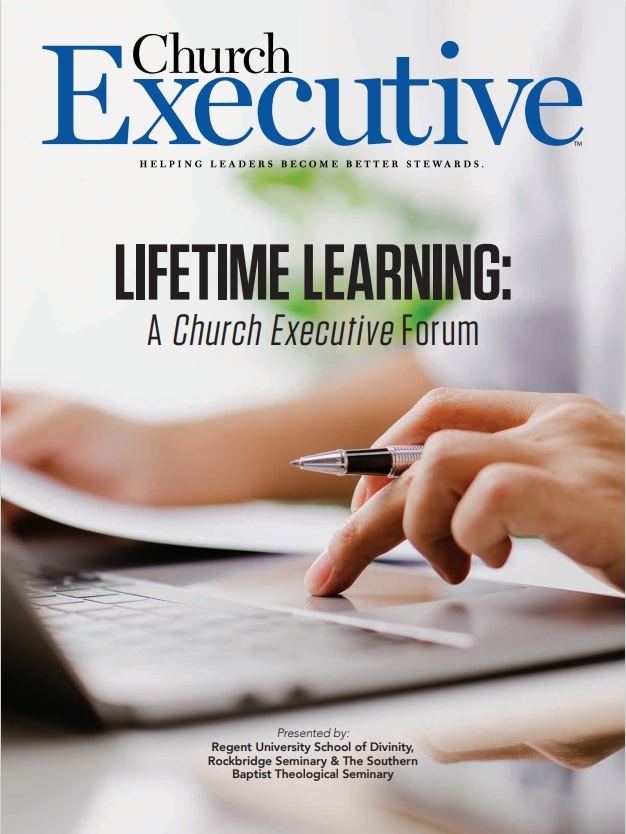
 Should I get a master’s degree?
Should I get a master’s degree?
Should I not get a master’s degree?
Our church can’t afford it — will it benefit me?
Can I even afford it?
Despite these perpetual questions (which you’ve probably asked yourself at some point), full-time bi-vocational and volunteer church leaders are embracing advanced degrees right now. Even post-COVID, and even in a difficult economy.
Why?
Because there’s always a need to keep, develop and sharpen your “tools” — to make sure you’re trained in the ministry God has called you to do. And there’s always a way to ‘make it work.’

President
Rockbridge Seminary
From our perspective as a seminary offering lifetime learning, making it work often takes the form of practical ministry training. We don’t just offer education for education’s sake; biblically based, this training helps you be a better pastor, a better shepherd, and better equipped to grow your church and your people.
Specifically, our training focuses on 35 different ministry skills that will help pastors and ministry leaders better lead and run their churches and staffs. Skills which are always in demand among these busy full-time or bi-vocational church ministry leaders include preaching and teaching the truth of God’s word in a meaningful and application-based way. Areas of focus include theology, spiritual formation, pastoral care, leadership and pastoring.
No need to be afraid of change
Interestingly, training this personal can be accomplished online. In fact, our entire student population is remote; it has been that way since our beginning 20 years ago. We designed it this way so our students can stay in their ministry roles. There are no residential requirements, ever, to get your advanced degree.
You could rightly say that we specialize in online education — including how to keep it personal and user-friendly. The latter part is especially important, as many students haven’t been in active study for 10-plus years. Back then, an in-person lecture format was the standard; now, we walk students through how to do school online. Then, we keep our class structures consistent so that students don’t have to “relearn” the process.
To keep online education personal and relational, students have access to professors, administrators and faculty. In fact, in our students’ experience — even among those who were skeptical of online study, at first — interaction with professors and other students has actually proven greater than in a traditional classroom setting.
Online, professors aren’t just lecturing; they’re interacting with students. They’re responding to their thoughts. They’re leading students through group projects done all together as a class or as small groups. They’re answering questions. That’s their job. So, it’s highly interactive.
Advanced education really is for everyone

The cost to pursue an advanced degree will always be a concern. But it can be manageable.
Our seminary operates on a pay-as-you-go basis; you only pay for the classes you take. For this reason, we endeavor to remain affordable and accessible to those with the call of God on their lives.
And if time constraints are an issue, keep in mind that the pursuit of advanced degrees at our institution was designed with busy adult learners in mind. You can take one class at a time, or you can take six classes a year; it all depends on when you want to obtain your advanced degree.
Moreover, being able to work at your own pace is a major advantage of studying online. Because you’re not bound to a traditional classroom setting, you can study at night if that works best. You can study at lunchtime, or in the morning — whenever it’s most convenient.
Today, you have the ability to take your education with you wherever you go.


